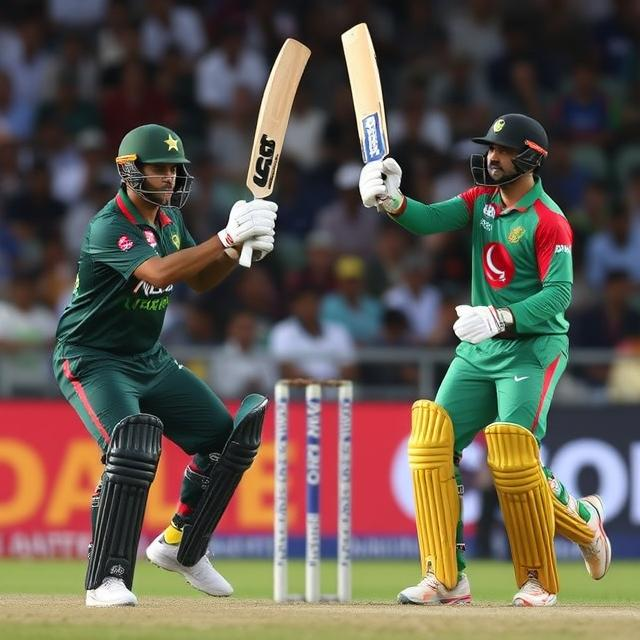Pakistan Cricket Match Fixing: A Deep Dive into Corruption

Pakistan Cricket Match Fixing: A Deep Dive into Corruption
Cricket, a sport revered for its passion and athleticism, has unfortunately been marred by allegations of match-fixing in numerous countries, most notably in Pakistan. This article delves into the complex issue of match-fixing within the Pakistan cricket team, exploring its devastating consequences, the individuals involved, and the measures taken (or not taken) to combat this insidious problem.
Unveiling the Dark Secrets: A History of Suspicions
The shadow of match-fixing has long loomed over Pakistan cricket. While accusations have been made against players in various other nations, Pakistan has faced particularly intense scrutiny. The allegations stem from a combination of factors, including the perception of vulnerable players under pressure, the financial disparities within the cricket community, and, perhaps most importantly, a culture that for a time seemed tolerant or even accepting of these practices. The combination of such elements created a fertile ground for corruption to take root.
The implications of match-fixing are far-reaching, extending far beyond the sport itself. It erodes public trust, damages the reputation of entire nations, and undermines the very integrity of the game.
The Fallout: Impact on Players and the Sport
The players caught up in these schemes face severe personal and professional repercussions. The stigma of being associated with match-fixing can follow them for life, impacting their ability to secure new contracts and diminishing their public image.
Beyond the individuals, match-fixing also severely damages the image of the sport. It shakes public trust and confidence in the game, leading to a loss of fans and sponsors. This decline in popularity further harms the financial viability of the sport, hindering the growth and development of young players.
The Players and the People Behind the Allegations
Many individuals, both players and officials, have been implicated in match-fixing scandals throughout Pakistan cricket’s history. The details of these cases are complex and often shrouded in secrecy, making it difficult for the public to fully understand the scope and extent of the corruption.
Investigative journalism and painstaking analysis by individuals in the community have brought these allegations into the light. It is crucial to remember that while some allegations may be sensationalized or incomplete, a careful examination of the evidence is essential to understanding the complete picture.
The Pursuit of Justice: Investigations and Punishments
Pakistan Cricket Board (PCB) and other governing bodies have pledged to combat match-fixing vigorously, and there have been attempts to implement stricter measures, including extensive investigations. Yet the effectiveness of these efforts has been questioned by many due to the complexity of gathering concrete evidence and navigating the systemic issues that may underpin these scandals. Transparency and accountability are crucial, and fans deserve the assurance that such cases are handled with impartiality and seriousness.
The penalties, when imposed, have varied greatly. Some individuals have been banned for life from participating in cricket, while others have received more lenient punishments. The disparity in penalties, or the perceived lack of them, has fuelled ongoing debate about the effectiveness and impartiality of the governing bodies’ responses.
It’s important to maintain an objective approach when discussing these allegations, avoiding personal opinions and focusing on the facts available to us, which are often incomplete and debated.
A Look Beyond the Headlines: Examining the Root Causes
The issue of match-fixing in Pakistani cricket is not simply about individuals; it reflects deeper societal concerns. Economic pressures, the desire for quick riches, and a lack of robust anti-corruption measures all contribute to creating a climate in which match-fixing can thrive.
A crucial part of tackling this problem is addressing the systemic issues that allow it to persist. Improving the financial security of players, bolstering education about ethical conduct, and creating more transparent and accountable governing structures are all vital steps in preventing future incidents.
The Future of Pakistan Cricket: Moving Forward
Moving forward, Pakistani cricket needs a profound commitment to ethical practices, strong anti-corruption measures, and unwavering transparency. The PCB, the players themselves, and the public all have a role to play in creating a culture of integrity and accountability. The support of fans, who have a significant stake in the game’s future, is indispensable. Enhancing the perception of justice and punishment, regardless of the individuals involved, is paramount.
Thorough investigations, swift and decisive action, and a sustained commitment to ethical values are essential for rebuilding public trust and ensuring a brighter future for Pakistan cricket.
The road to restoring faith in Pakistani cricket is long and challenging, but not insurmountable. It requires a united effort from all stakeholders to cultivate a culture where integrity takes precedence over financial gain.
Conclusion
The history of match-fixing in Pakistani cricket is a complex and multifaceted issue that has had a profound impact on the sport and the nation. It necessitates a profound examination of the root causes, a firm commitment to ethical practices, and unwavering efforts to ensure a brighter future for Pakistan cricket.
The fight against corruption extends far beyond just the sport of cricket and reflects our collective responsibility for ensuring fair play and accountability in all aspects of society.